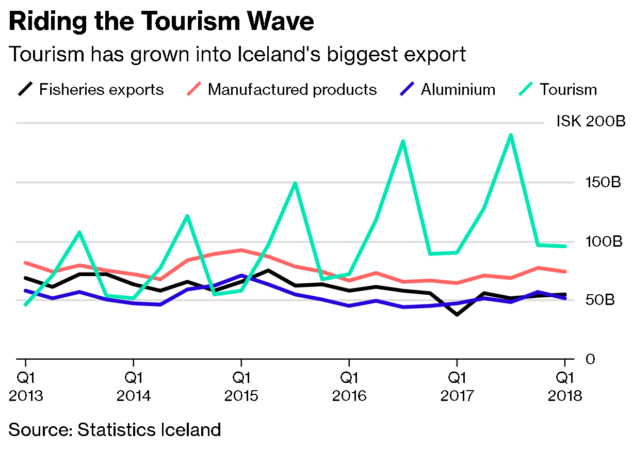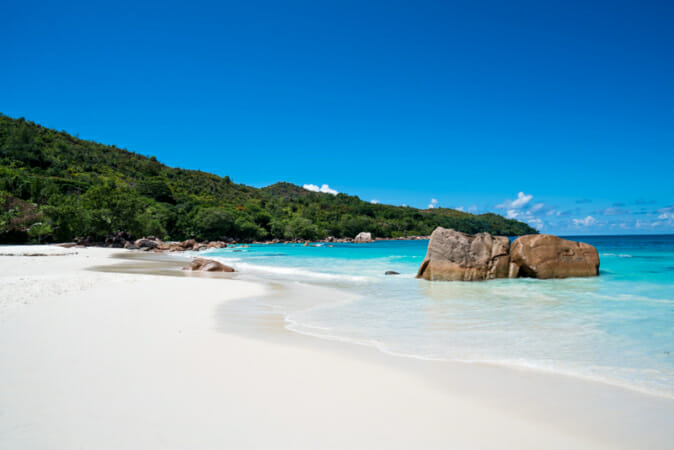Why the World Cup is a Unique Travel Industry Event
Ah, the World Cup. It only comes around every 4 years and is always over far too soon. This summer's tournament is no different, with 32 national teams from around the world heading to Russia to compete in beautiful game's greatest spectacle.
Like so many international sporting events, the World Cup brings together people and cultures that wouldn't normally mix. It's a festival atmosphere that somehow manages to drag everything into the mix. That explains why there are various sponsors from all over the world - including an 'official beer partner' - and every conceivable brand is seeking to get involved with the action.
This World Cup's FIFA Partners include Adidas, Coca-Cola, Gazprom, Hyundai/KIA, Qatar Airways and VISA. But aside from the huge multinationals, individual nations are also looking for ways to boost tourism as a result of the tournament.
Travel Industry Stories From the FIFA World Cup 2018
As we reach the end of the group stage and discover which countries will be facing off in the first knockout rounds, it feels like as good a time as any to look at how travel industry players are making the most of World Cup.
Here are a few examples.
Russia, Obviously
As the host nation, Russia has opened its doors to hundreds of thousands of football fans from all over the world.
In fact, more than 1.5 million foreign tourists are expected to visit Russia during the World Cup, the head of the Russian Federal Agency for Tourism, Oleg Safonov, said.
“We believe that about 1.5 million people will visit us. The figure may be even revised upward,” he said.
Eleven Russian cities are hosting matches throughout the tournament: Moscow, St. Petersburg, Kaliningrad, Volgograd, Kazan, Nizhny Novgorod, Samara, Saransk, Rostov-on-Don, Yekaterinburg and Sochi. The host nation hopes that, contrary to Russia's international reputation, the 2018 FIFA World Cup will have a long-term positive effect on Russia’s tourism industry.

It's too early to say what the long-term benefits will be to Russia, but it's likely that cities including Moscow and St. Petersburg - currently the main fan hubs - will see increased numbers of tourists following the positive experience of many international visitors. Market research company Euromonitor believes the World Cup could put Russia on the map for more tourists after the tournament ends.
"The number of inbound arrivals in Russia is expected to record a compound annual growth rate of 4 percent by 2022, reaching 37.5 million trips," Euromonitor's sports industry manager Alan Rownan said. In fact, Euromonitor forecast a 1.4 percent increase in the number of total arrivals to Russia in 2018.
“However, negative factors, such as lack of mid-tier accommodation facilities, safety concerns, relatively high visiting costs and burdensome visa regulations for non-ticket holders will have an impact on the incoming tourist flows,” said Rownan. “Furthermore, the recent political tension between Russia and UK is also likely to undermine tourist flows from the latter.”
Given the billions of dollars Russia has spent preparing to host the tournament with infrastructure investments, it's unlikely that those funds will be reimbursed overnight or even within a matter of years. The World Cup is being framed by Putin as a longer-term project to improve facilities in the country, not to mention the international prestige that comes with hosting.
There have been fears that foreigners have been put off making the trip for a variety of reasons. These range from strained diplomatic ties between Russia and the West, to threats of football hooliganism and discrimination against minorities.
But speaking to Skift, Varvara Topolyanskaya, general manager of Australian Russia tour operator Discovery Russia, said the World Cup is a chance for fears and doubts to be eased and reputations to be restored.
Her company is bringing more than 1,000 travellers to the World Cup. “We’re hoping for a completely different image of the country after people watch the matches on TV,” said Topolyanskaya. “We’re always asking our clients of their first impression of Russia and the number one response we get is that Russian people are so friendly.”
She added: “I think we have a lot of brainwashing right now in the media on what Russia is like, but that’s not what Russia is.”
Beyond the Hosts - A Chance for Smaller Nations to Build a Reputation
One of the best things about the World Cup is the platform it gives smaller nations to make a name for themselves.
At Euro 2016, for example, the Iceland football team captured the imaginations of people around the world - both on the pitch and off it. As well as making it through the group stage and beating England in the last 16, the team's fans became famous in France for their passionate support.
The easiest way to understand is to watch the video above.
Sure, the 'ThunderClap' doesn't directly make Iceland a more appealing destination. But its popularity says something about the nation to the wider world: that despite being the smallest country in terms of population at the World Cup, it's going to have its say no matter what.
In fact, according to Bloomberg, Iceland's tourism industry is expecting its football team to drive further interest in the country's tourism industry.
Which is handy, because by Icelandic standards the country's tourism boom has plateaued...

However, the chance to shine on the global stage is an opportunity to bring back some spark. "Iceland is stepping on the big stage this summer," said Skapti Orn Olafsson, a spokesman for the Icelandic Travel Industry Association, so "we surely have a clear shot on goal to use the attention in a positive way."
No puns intended, of course.
Yet there is real hope that an injection of footballing interest in Iceland will stretch beyond the smallest nation in the tournament becoming many fans' second team. It could drive more visitors, too.
On the flip side, it might turn out that the appreciation of the Icelandic krona (it has strengthened by more than 40 percent against the euro since 2009) - one factor thought to be contributing to the slowdown in growth - is a blessing in disguise. Although it has turned Iceland into the most expensive tourist destination in the world and led to Landsbankinn to declare that "the tourism boom is over," there have been worries about the sustainability of Iceland's tourism growth.
An Influx of Chinese Tourists
Anyone working in the travel industry will know how lucrative it can be to tap into the Asian markets. Across the continent, there is a real demand for international travel experiences - no more so than in China.
Incredibly for a country whose team hasn't even made it to this summer's World Cup Finals, it's expected that more than 100,000 Chinese tourists will make the trip to Russia.
Interestingly, Russia is becoming a magnet of sorts for Chinese holidaymakers, so it's no surprise that they are flocking in to watch the football.
According to data released by Trip Advisor, the number of Chinese tourists between January and May increased by 38 percent year on year. Data collected by Ctrip suggests that, for example, two-leg tours to Moscow and St. Petersburg over the summer have seen a month-on-month increase of over 100 percent. The conclusion: It seems as though the Chinese are coming for the football and making a vacation of it.
And Don't Forget India
Another football-mad country that failed to qualify for this summer's tournament is India. According to the India Times, wealthy Indians will be heading to the World Cup in huge numbers, despite a spike in airfares and hotel rates.
According to the piece, the relative proximity of Russia makes it an ideal starting point for a summer trip of famous sporting events, from the World Cup to the Wimbledon Championships.
“We have seen an increase in people travelling to Russia during this period. Airfares and hotel rates have definitely gone up by at least 20% due to increase in demand for the World Cup, but this hasn’t dampened demand,” said Karan Anand, head of relationships at Cox & Kings, one of India’s oldest travel agents.
“We have also seen a 10% increase in last-minute bookings to Russia, and expect this to continue, and even peak closer to the final stages of the tournament.”
The Other Side of the World Cup from a Tourism Perspective
It seems obvious to say but we will say it anyway: If the World Cup is drawing travellers to Russia in huge numbers, surely there are other destinations missing out?
That appears to be the case, at least in the Seychelles.

The archipelago in the western Indian Ocean is a popular destination for tourists from around the world. Among the country's most common visitors are Russians. However, the Seychelles has seen just a two percent rise in inbound tourists for the first half of the year. The boss of the Seychelles Tourism Board, Sherin Francis, has said that the figure is below what the country was predicting.
One huge part of that is the fact that the number of Russians coming for the summer has dropped by a huge 18 percent compared to the same period last year. Francis believes that the FIFA World Cup is partly responsible: Many Russians are no doubt staying at home to enjoy the party and choosing to travel around their own country instead.
The value of the Russian ruble has also dropped in recent times, making travel abroad more difficult for the Russian market. Both of these conditions “are not favourable for prompt recovery of this market,” she said.
“Four years ago, we had only one percent increase and this year we see ourselves faced with a similar situation. Russians are travelling within Russia to watch the matches as the event is taking place in their country. We also see other potential visitors from Europe as well as other markets travelling to Russia to support their teams,” said Francis.
Final Thoughts
So there you have it. The World Cup is a unique travel industry event that causes some obvious tourism shifts, as well as some unexpected ones.